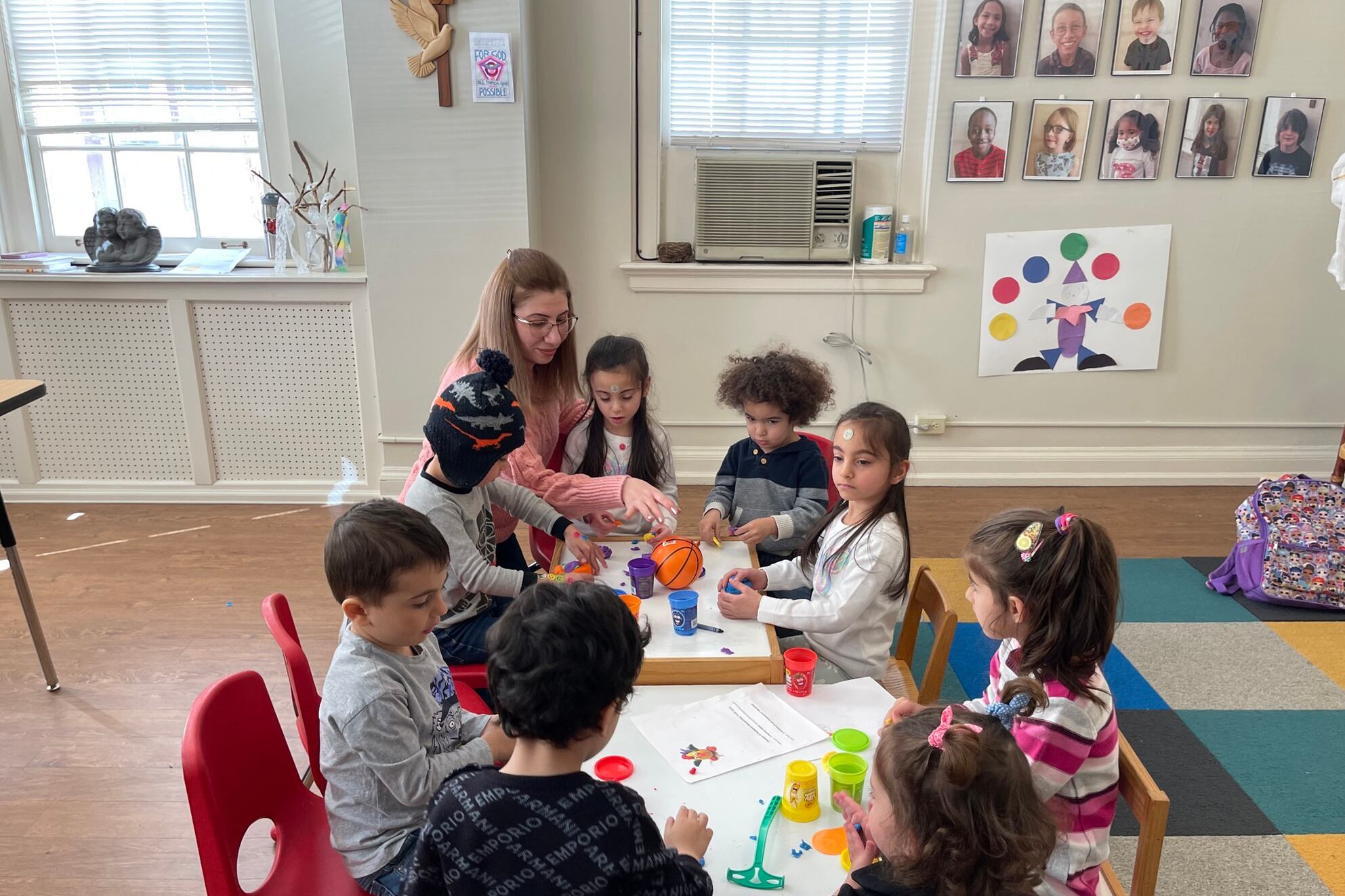Much of the federal relief aid sent to Colorado’s child care providers during the pandemic helped keep doors open and businesses solvent.
But one small stream of federal COVID funding — $23 million — was used for innovation in the sector rather than its survival. That money was distributed through the CIRCLE Grant program and helped fund more than 200 projects around the state. The projects included weekly bilingual preschool classes for Armenian-American children, a training program for Head Start parents working as classroom aides, and a loan program to help child care employees cover emergency expenses.
While the grant funding represents a fraction of the $678 million in federal COVID relief sent to Colorado’s early childhood sector, program leaders are proud of the grassroots efforts it sparked.
“Once again, we are seeing that folks that are closest to the problems have the best solutions,” said Jennifer Stedron, executive director of Early Milestones Colorado, which distributed the CIRCLE grants.
The yearlong grants ranged from $10,000 to $300,000. Many of them focused on making child care more accessible to families. In some cases, that meant creating new infant and toddler classrooms or sending mobile preschools to underserved neighborhoods. In others, the goal was to better meet specific needs, say, by adding programs for bilingual students or children with disabilities.
The nonprofit Armenians of Colorado Inc. used its $35,000 CIRCLE grant to pilot a free Saturday preschool class that incorporated both English and Armenian. A dozen children attended the program last spring at the First Baptist Church of Denver, some who didn’t know a word of Armenian and some who spoke only Armenian. They listened to poems and stories in Armenian and also did activities in English, including one on the Easter bunny.
The idea was to “show the kids you can use both languages to have academic and social interactions,” said Simon Maghakyan, an activist in the Armenian community and a CIRCLE Grant consultant for Armenians of Colorado. “It’s important they see value in both.”
Some of the children, who ranged in age from 2 to 5, had never attended any kind of preschool, he said. For most, it was “their first introduction to either language in the written form.” The two languages have different alphabets.
The Armenian community has deep roots in Colorado, with some of the earliest immigrants arriving in the late 1800s. Statewide, there are about 5,000 people of Armenian descent. The Armenian Genocide during the World War I era, as well as more recent displacements, have gradually brought more Armenians to the United States and Colorado.
But it’s still a relatively small group, and because of assimilation pressures and the dominance of English globally, it can be a struggle to maintain the Armenian language, Maghakyan said. That’s why the Saturday preschool program is important. The CIRCLE grant supplied only enough money to plan and run a three-month pilot, but leaders with the organization hope to find a way to keep it going in the future.
Besides funding new programming for children, many CIRCLE grant projects focused on supporting the chronically underpaid early childhood workforce with increased wages, training, or other benefits.
The Denver nonprofit WorkLife Partnership used its CIRCLE grant to offer a program that’s usually available to employers for a fee to child care providers free of charge. The program helps employees quickly access small loans at a lower interest rate than payday lenders would charge.
The process is simple: Employees struggling with a large or unexpected expense, such as a security deposit, utility bill, or car repair, can request a $1,000 loan through WorkLife with no credit check or collateral requirement. The money lands in their bank account in as little as 24 hours. They then pay back the loan through monthly payroll deductions over the course of a year. With interest and a $20 administrative fee, the total repayment on a $1,000 loan is $1,116.
Logan Jones, financial services manager for WorkLife, said, “it’s really designed to be an anti-payday loan.” It helps employees, especially those with bad credit, avoid exorbitant interest rates when they’re in crisis.
He said about 15 employees at two participating Denver area child care centers have taken advantage of the loans, most often for housing costs. Borrowers don’t have to say why they’re seeking the loan, but many do later in voluntary surveys, he said.
Jones said that although the loan benefit was offered free to child care providers through the CIRCLE grant, many didn’t take advantage of it because there were so many CIRCLE grant opportunities and offers at the same time.
“It needs to be staggered out longer,” Jones said.
Stedron, of Early Milestones, agreed that the one-year grant timeline was too short.
“I wish they could have gone on forever, certainly more than one year,” she said.
Ann Schimke is a senior reporter at Chalkbeat, covering early childhood issues and early literacy. Contact Ann at aschimke@chalkbeat.org.






